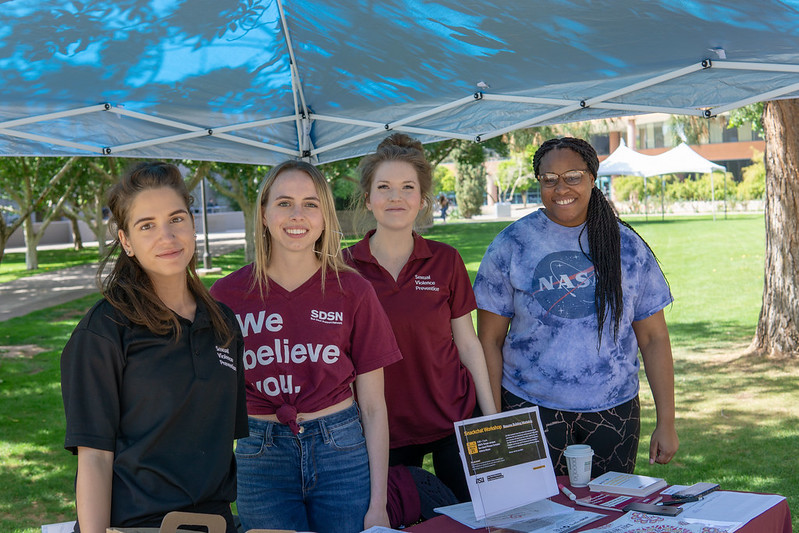What you may not know about stalking
Though pop culture tends to romanticize intensity and drama in romance and friendship, unhealthy relationships can be harmful to your mental health and your safety.
Do you know what is considered unhealthy relationship behavior IRL, what stalking is and what you can do about it? Since January is Stalking Awareness Month, Arizona State University Associate Professor Kate Fox from the School of Criminology and Criminal Justice is helping ASU Student Life bust some myths and raise awareness about stalking.

Students from ASU's Sun Devil Support Network
1. Stalking isn’t flattering; it’s threatening.
Stalking is sometimes mischaracterized as “flattering” or harmless shows of affection or love.
In reality, stalking is behavior that is repetitive, intrusive, unwanted and frightening, threatening or harassing. It’s hard to define because stalking often includes legal behavior — such as showing up at someone’s work or home, sending gifts and posting messages on social media. But stalking can be very scary. It is the persistent pursuit of someone, and that is illegal.
2. Many people experience stalking, and college women are at greater risk.
Nationally, 16% of women and 5% of men are victimized by stalking during their lifetime. College women are at an even greater risk of stalking victimization than the general public. For example, a study in “Criminology and Public Policy” found that 13% of college women in their national sample had been stalked within the school year. Another study found that 25% of college women had been stalked during their lifetime.
3. You can spot red flags in both romantic and platonic relationships.
There are signs of unhealthy behavior in many friendships and relationships, and it’s normalized in pop culture. Any relationship that is too intense too quickly, disrespectful, volatile, possessive and more can be red flags. If it progresses to stalking, that’s a crime that should be taken very seriously. More than three-quarters (76%) of women killed by an intimate partner were stalked first.
4. Victims and supporters can take action.
It’s important to know that victims can take action. There is help. Here are some things you can do if you feel threatened or if you need to talk through what healthy relationships look like.
Call 911 — report the behavior to police.
Call the ASU Police.
Get in touch with ASU Counseling Services to talk about resources.
Contact the Victim Advocate to discuss safety planning if you feel unsafe.
Remember to trust your instincts about how you’re feeling in a situation.
5. Sun Devils are dedicated to a safe and healthy campus.
There are many things that ASU students can do to get involved in creating a safe environment on campus. The Sun Devil Movement for Violence Prevention, the Sun Devil Support Network and other student groups conduct training and other programming to raise awareness about healthy relationships and on-campus resources.